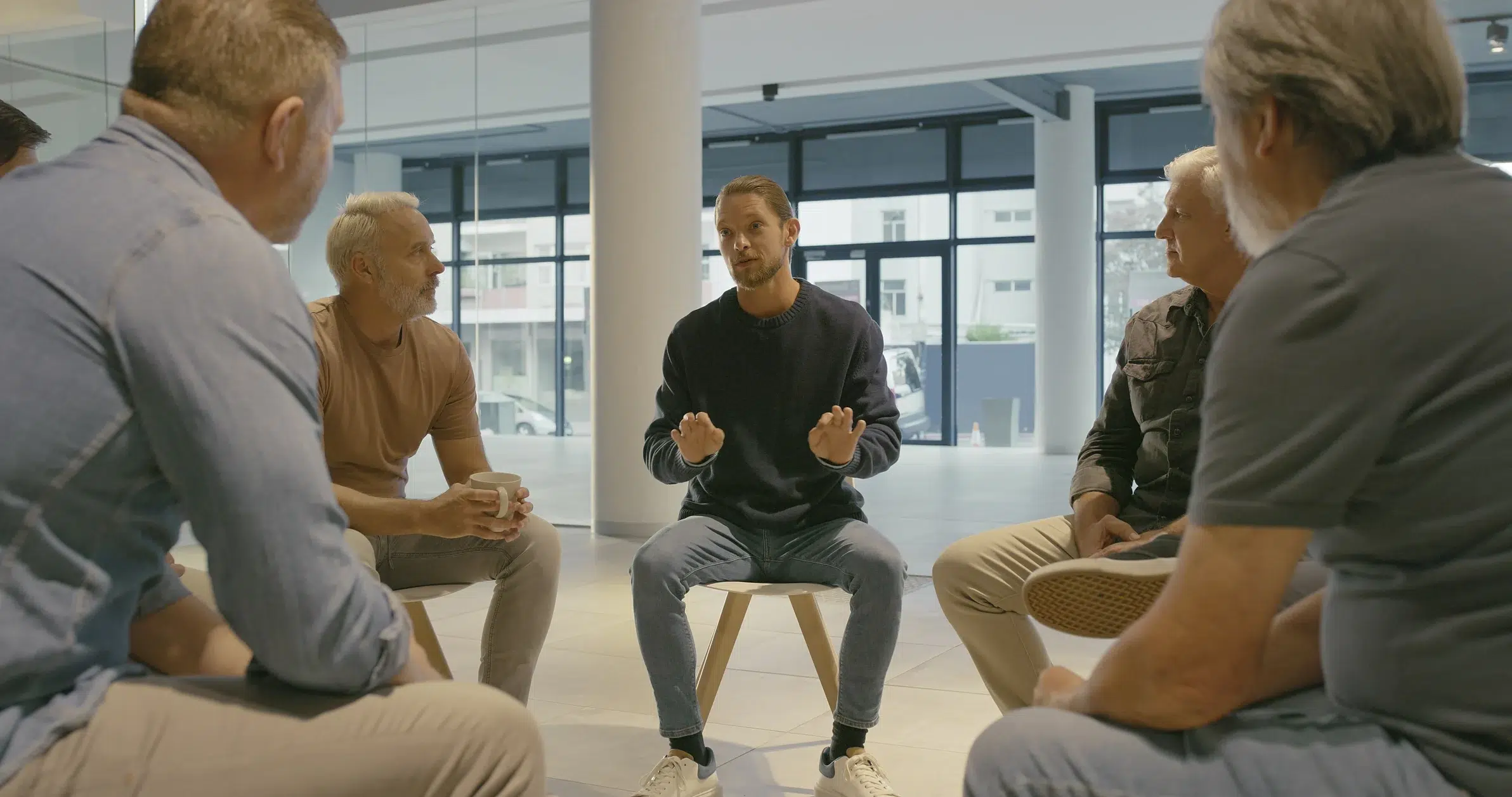Written and reviewed by the clinical team at New Life Recovery in Fresno, California, including licensed therapists, medical professionals, and recovery specialists committed to helping individuals build healthier futures.
Take the first step toward healing–reach out to our Fresno drug and alcohol rehab team today.
When it comes to substance use disorder symptoms, many people can miss the early signs until these symptoms have already begun to significantly affect their lives. This can quickly lead to more intense issues later on in life and during the recovery process.

Struggling with substance use disorder doesn’t mean you have an inherent moral failure. Instead, it’s a chronic, progressive disorder that can be managed with the right treatment and support.
Early recognition of substance use disorder symptoms can dramatically improve outcomes and increase the chances of long-term recovery.

At New Life Recovery, our comprehensive approach to substance use disorder symptoms integrates both evidence-based therapies and holistic practices to provide a well-rounded treatment experience that nurtures the mind, body, and spirit.
At New Life Recovery, we offer a full continuum of care all in one supportive campus. Our levels of care are designed to meet individuals wherever they are, whether they’re taking the first step toward recovery or building on a strong foundation.
The first step for many individuals is safely withdrawing from drugs or alcohol under medical supervision. Our medical detox provides 24/7 support from trained professionals who monitor vitals, manage withdrawal symptoms, and ensure comfort and safety.
Once stabilized, clients can transition into inpatient care, where they receive around-the-clock therapeutic support in a structured environment.
Our PHP provides a high level of support while allowing individuals to return home in the evenings or reside in sober living. Individuals attend full-day therapeutic programming and receive psychiatric care, individual therapy, and group therapy.
Designed for individuals who are ready to take on more responsibility in their recovery, our IOP includes several hours of therapy each week while offering the flexibility to manage work, school, or family obligations.
Our outpatient program is ideal for those further along in their recovery journey. It includes weekly group and individual sessions focused on relapse prevention, coping strategies, and continued personal growth. Clients remain connected to care while transitioning into daily life with confidence.
Recovering from substance use disorder symptoms doesn’t end when a program does. Our aftercare planning includes 30-, 60-, and 90-day check-ins, outpatient referrals, and connections to community resources.
We also offer alumni events and peer support to keep individuals engaged, inspired, and empowered long after they leave our campus.
Evidence-based therapies form the backbone of our treatment approach, providing structured, scientifically-supported methods to treat substance use disorder symptoms.4
These therapies have been shown to help individuals understand the root causes of their addiction, manage cravings, and develop healthier coping mechanisms.
Some of the therapies we offer include:
In addition to evidence-based approaches, we also integrate holistic therapies that foster physical and emotional healing for substance use disorder symptoms.5

If your or your loved one’s substance use disorder symptoms continually impact your daily life, it’s important to know that you are not alone, and there is a path forward.
New Life Recovery offers a safe, supportive space to explore what’s going on and begin your journey toward healing, hope, and lasting change. Our team is here to guide you every step of the way, ensuring that you have the tools and support you need to reclaim your life.
At New Life Recovery, we believe in treating the whole person, not only the substance use disorder symptoms. That’s why each client receives a personalized treatment plan that is tailored to their unique needs and goals.
We work with you to develop a roadmap for healing that integrates both traditional therapies and holistic practices.
Remember, early action leads to better outcomes. Don’t wait to seek help; take the first step today toward a healthier, happier future.
Connect with our Central Valley, California team today to learn more about how New Life Recovery can help you begin your healing journey.
In addition to the comprehensive programs at New Life Recovery, California residents can access community-based support groups, state-funded recovery resources, and local partnerships that provide housing, vocational training, and mental health services during and after treatment.
New Life Recovery combines evidence-based therapies with holistic treatments in a single, centralized campus. This allows clients in California to receive personalized, seamless care without needing to transfer between facilities.
The program addresses both the symptoms and root causes of addiction for long-term healing.